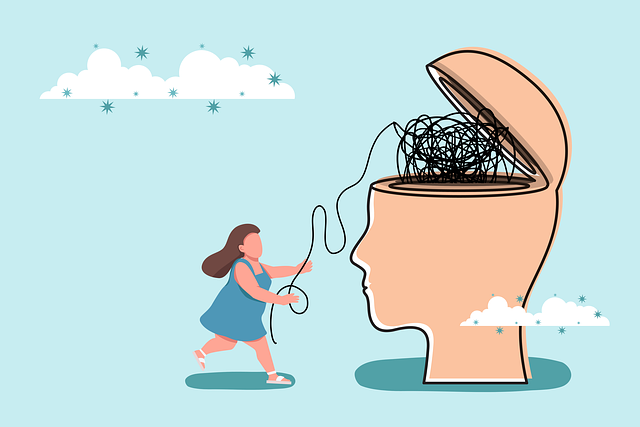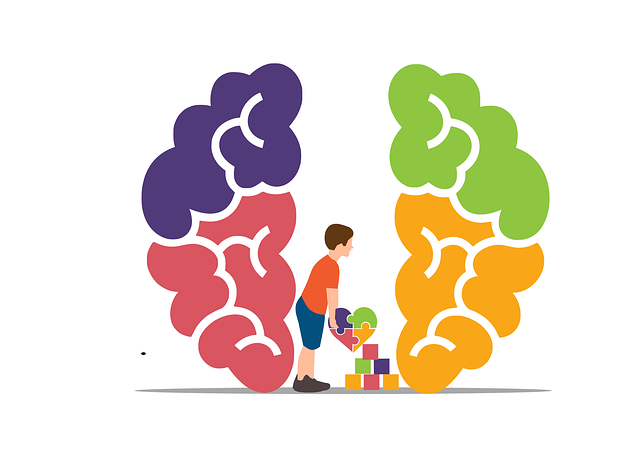Understanding and advocating for evidence-based practices like Littleton Dialectical Behavioral Therapy (DBT) is crucial for igniting positive change in mental health policies. DBT, recognized for its success in managing complex conditions, focuses on emotion regulation, distress tolerance, and interpersonal skills. By integrating DBT into policy frameworks, we can promote stigma reduction, cultural sensitivity, and tailored services for diverse communities. This collaborative approach improves access to quality mental care, benefiting all individuals seeking support. In Littleton, implementing DBT could significantly enhance overall well-being by offering specialized treatment and Mental Health Education Programs, preventing crises and fostering community resilience.
Mental health policy advocacy is a powerful tool for driving systemic change and improving access to quality care. This article delves into the intricate world of mental health policy analysis, exploring key strategies and initiatives that shape healthcare systems. From understanding the foundations of mental health policy to examining the impact of existing programs, we uncover the role of evidence-based practices like Dialectical Behavioral Therapy (DBT) in policy reform. By analyzing successful cases, we provide insights into building effective strategies for advocacy, with a specific focus on Littleton’s experience with DBT integration.
- Understanding Mental Health Policy: A Foundation for Change
- The Role of Dialectical Behavioral Therapy (DBT) in Policy Advocacy
- Analyzing the Impact of Existing Mental Health Initiatives
- Building Effective Strategies for Policy Reform
- Advocating for DBT Integration: A Path to Improved Care
Understanding Mental Health Policy: A Foundation for Change

Understanding Mental Health Policy is akin to illuminating a path toward transformative change. By examining existing policies and advocating for evidence-based practices like Littleton Dialectical Behavioral Therapy (DBT), we can begin to address systemic issues plaguing mental healthcare. DBT, renowned for its effectiveness in treating complex conditions, offers a structured approach to emotion regulation, distress tolerance, and interpersonal effectiveness – crucial components in fostering resilience and enhancing self-esteem improvement.
This policy analysis goes beyond mere review; it involves championing Mental Illness Stigma Reduction Efforts and promoting Cultural Sensitivity in Mental Healthcare Practice. By integrating diverse perspectives and tailoring services to meet the unique needs of various communities, we can create a more inclusive and effective mental health system. Ultimately, this collaborative approach paves the way for improved access to quality care, ensuring that everyone, regardless of background, receives the support they need to thrive.
The Role of Dialectical Behavioral Therapy (DBT) in Policy Advocacy

In the context of mental health policy advocacy, Dialectical Behavioral Therapy (DBT) stands out as a potent tool for driving positive change, particularly in communities like Littleton where access to specialized treatment is crucial. DBT’s evidence-based approach focuses not only on crisis intervention guidance but also on fostering mental wellness and enhancing coping skills. By integrating DBT into policy frameworks, advocates can ensure that programs are designed with an emphasis on long-term mental health education, empowering individuals to navigate emotional challenges effectively.
This therapy’s success lies in its holistic nature, addressing both the individual’s present needs through crisis intervention and equipping them with lasting strategies for emotional regulation. As such, DBT becomes a valuable asset in shaping policies that move beyond reactive measures, aiming instead to prevent mental health crises and promote community resilience. The implementation of DBT within Littleton’s mental health landscape could lead to more proactive and inclusive Mental Health Education Programs, ultimately improving the city’s overall well-being.
Analyzing the Impact of Existing Mental Health Initiatives

Mental health initiatives, such as Littleton Dialectical Behavioral Therapy (DBT), play a pivotal role in addressing the diverse needs of individuals struggling with mental well-being. DBT, specifically tailored for those with borderline personality disorder or intense emotional dysregulation, has shown remarkable results in improving coping skills development and fostering positive thinking. By integrating evidence-based practices, these initiatives aim to enhance individuals’ ability to navigate challenging situations and manage their emotions effectively.
The impact of such programs is profound, as they not only provide therapeutic interventions but also equip participants with valuable conflict resolution techniques. Through group therapy sessions and individualized support, Littleton DBT facilitates personal growth, resilience, and improved overall mental health outcomes. By evaluating the effectiveness of these initiatives, advocates can strengthen their policy analysis, ensuring resources are allocated to programs that foster lasting positive changes, including enhanced coping mechanisms and better emotional regulation.
Building Effective Strategies for Policy Reform

In crafting effective mental health policy reforms, it’s crucial to integrate evidence-based practices like Littleton Dialectical Behavioral Therapy (DBT). DBT has proven successful in treating complex emotional disorders, making it a valuable asset in shaping comprehensive policy initiatives. By adopting this therapy, policymakers can ensure that resources are allocated towards prevention and early intervention programs, ultimately reducing the burden on healthcare systems.
The design of Mental Health Education Programs should be at the forefront of these reforms. Educating both the public and healthcare providers about mental health is paramount. Effective Communication Strategies, tailored to different audiences, can dispel myths and promote understanding. Additionally, burnout prevention strategies for healthcare providers are essential; these strategies ensure that frontline workers, often overstretched, remain resilient and effective in their roles. This holistic approach, combining evidence-based treatments, educational initiatives, and support for healthcare professionals, is key to building successful policy reforms in mental health advocacy.
Advocating for DBT Integration: A Path to Improved Care

Advocating for the integration of Dialectical Behavioral Therapy (DBT) in mental health care systems is a significant step towards enhancing patient outcomes and promoting mental wellness. DBT, originally developed by Dr. Marsha Linehan, has proven to be highly effective in treating individuals with complex emotional regulations challenges, including borderline personality disorder (BPD). By integrating this evidence-based therapy into mainstream practices, healthcare providers can offer more comprehensive care.
Littleton Dialectical Behavioral Therapy specifically focuses on teaching individuals skills to manage emotions, tolerate distress, and improve interpersonal effectiveness. This approach not only benefits patients with BPD but also has applications in various mental health contexts. The development of Mental Wellness Coaching Programs, for instance, can complement DBT by providing ongoing support and guidance outside of traditional therapy settings. Moreover, a thorough Risk Assessment for Mental Health Professionals is crucial to ensure the safe and effective delivery of DBT, fostering an environment where both caregivers and patients can thrive.
Mental health policy analysis and advocacy are essential steps towards creating a more inclusive and effective healthcare system. By understanding the current landscape, examining successful initiatives like Dialectical Behavioral Therapy (DBT), and analyzing existing programs, we can forge powerful strategies for reform. Integrating DBT, as demonstrated in Littleton’s approach, holds promise for improving mental health care by providing comprehensive and tailored support. This analysis encourages advocates to continue pushing for policies that prioritize mental well-being, ensuring everyone has access to life-changing treatments like DBT.













